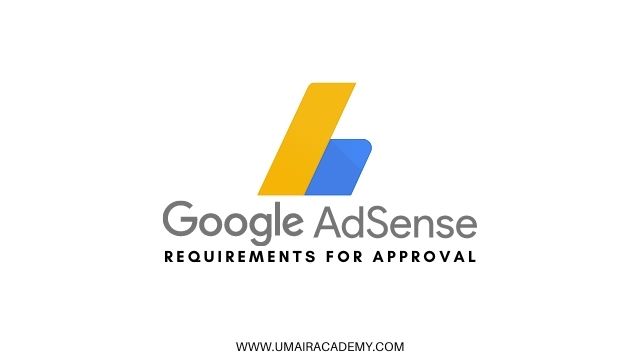If you have a blog and you don't want to buy a domain name for your website, then you can go for blogspot.com which is absolutely free from Google Blogspot. Just you have to publish your content on regular cycles to make sure google gets positive actions from your websites. The first thing you may need to know is, Exactly what Adsense wants when you apply for a website approval. In this guide, I will share all of my experience and knowledge to get approval from Adsense on the Blogspot domain.
What is Blogger? or Blogspot.com?
On the internet, you may have seen some websites with subdomains of blogspot.com like webmicron.blogspot.com, mods-appetite.blogspot.com, Wordsoftrend.blogspot.com, etc. These all are free blogs which means they are not paying a single penny for making and publishing posts. They use Blogger.com to get approval from Google Adsense. And you can also, but there are some requirements that you have to follow before you apply for AdSense.
The main question that comes to everyone's mind is,
"Adsense Gives Approval on Blogspot com?"
(Suspense Spoiler: Yes It gives) You can definitely get approval on google Adsense if you follow some rules and do not violate their policy and terms. If you don't have much budget to buy a domain and want to start a blog then you are just at the right place and just 2 -3 steps away from your website. And if you have created your blog already, then you have to just follow some steps and your blog will be monetized with Adsense in no time.
To get approval on Adsense, you need to follow some rules provided by Google Adsense. I am listing some of them to make a clear display of what you have to do, and what don't. So I hope this guide will get you to success in approving your website. If your website is not approved the first time then it's not a big deal, you can modify your website and reapply and I hope if you fixed your issues and delivered quality content, Your website will definitely be approved.
REQUIREMENTS TO GET APPROVAL
The good news is that "Getting Approval of Google AdSense with a New Blog is Now Really Easy," provided you follow a few fundamental principles from the beginning of your blog. When I initially attempted, I was rejected. As a result of adhering to these guidelines, my AdSense account has been accepted. After giving it some thought, I've decided to disclose the fundamental AdSense guidelines.
1 - You must be 18 Years Old
This one's a cinch. AdSense eligibility requires that you be at least 18 years old, according to Google's terms and conditions, which almost no one has ever read in the history of the universe. These 16-year-olds who create a popular website but have no means to make money off of it must find this irksome. Until you're old enough to establish your own account, you can register with your parents' details if your site is excellent enough to be worth monetizing. That is why I will spare you the details that aren't relevant to the vast majority of you. The only way to become older is to grow up.
2 - You must Own and Control Your Site
As a rule, you must be able to edit the site's content. By publishing material that isn't your own, you're breaking Google's terms of service and risking copyright infringement. However, there are a few notable exceptions to this generalization. If you're a site with syndication rights, you may still monetize material from other sources.
If you want to "manage" your website, you'll need to have access to its source code. If you can't add the ad code to the site, then AdSense won't function, right? There are several exceptions to this as well. Sites like HubPages, for instance, let site writers add their own code and display advertisements that alternate between their own and the author's on the material of that individual. Alternatively, you may join up for AdSense for YouTube and monetize a YouTube account without ever having to bother with coding, because it's already there.
3 - Your site must have Unique and Interesting Content
This and the following one are hidden in a section titled "make sure your site's pages are ready for AdSense." As a matter of thumb, your site must have valuable material in order to be able to monetize it. In the event, Google discovers that your site is full of thin pages, content that has been stolen or scraped, content that doesn't make sense, or information that offers no value to a reader, they're likely to reject your application.
To be honest, this is only some basic information about search engine optimization. Your material should be focused on what people genuinely desire, so you should be OK. The standard is really poor. This is primarily intended to weed out spam sites, PBNs, content thieves, and other undesirable elements from search results.
4 - Your site must have a clear Menu Bar
Users need to be able to find their way through your site, and Google requires that their team assess the site, so if that team cannot navigate, you will not be approved.
Here's what Google recommends your website should have:
- Easily accessible menus or navigation bars.
- Menu bar components that are all in the right places.
- Easy to read text on your bar.
- All of the elements, drop-downs, and links are working properly.
Of course, Google does not impose the "standard" site design that can be seen all over these days. If you wish to, you may utilize a sidebar, an inverted sidebar, or even hovering footers for your navigation, as long as they are obvious and effective. However, it is possible that users will find it offensive. Also, bear in mind that this policy, like the majority of Google's, applies to both desktop and mobile versions of the site.
5 - You must not drive Fake Traffic
This is a significant policy, maybe one of the most significant in the AdSense universe, but it's also not something you can test or verify before applying for the program. It's more probable that you'll be barred from the program than dismissed.
As Google Says:
Google ad clicks should be the consequence of real user interest. Any approach that intentionally produces clicks or impressions on your Google advertising is absolutely forbidden. It's against the law to utilize tactics like clicking or impressions that are repeated manually or that are generated automatically, as well as using robots or misleading software. Please be aware that clicking on your own advertising is strictly forbidden.
Google will sample your traffic and your clicks, and if they uncover evidence that you are referring fake clicks or impressions to your AdSense advertisements, they will ban you immediately.
6 - Your Content must Follow Google Adsense Policy
Google puts a number of limits on the kind of material that may be found on a monetized site. Sites like yours cannot include things like pornographic or explicit material for adults, violent or sexual content, threats or excessive language, or stuff that encourages hacking or malware, or sells illegal substances.
In reality, there's much more to it than what I've just written. The whole section on content policies may be found here. Generally, "anything vulgar, unlawful, adult, aggressive, hateful, or harmful" is prohibited. Before submitting your application, be certain your website conforms with all of the company's regulations.
7 - You cannot Post Copyright Content
Copyright laws require that every content on your site, including photos, text, and videos, be something you may use or share. As an illustration, your websites should include blog posts you wrote yourself, graphics you made yourself, a logo you hired someone else to develop for you, and other similar things. In contrast, your page should not contain information stolen from another page, photos taken from Google image search without permission to use them, or videos created by someone else that you portray as your own.
Some stuff you didn't produce can be lawfully used by you in certain circumstances. For example, embedding a public social media post or YouTube video is OK as long as you don't say you produced it when you didn't. You may also be asked to offer value by creating surrounding material that is distinctive. Images that weren't created by you can be utilized if you have permission to do so, such as those from a stock photo source.
8 - You must have Technical Pages
A page is more likely to be excluded from the program if there are no technical pages that demonstrate trust in the brand, even if Google doesn't explicitly state this. The Three Big Pages are the technical pages on our website: the Privacy Policy page, the About Us page, and the Contact Us page. Now, all of them need not be on different sites. It's a good idea to split the privacy policy into another page if it's complicated, but a simple "we don't gather any information" declaration is sufficient in certain situations. An About Us and a Contact page, for example, are frequently found to be one and the same.
The inclusion of an About page increases user confidence that you are who you say you are and that your business has some validity. In the same way, having a contact page with contact details like an address and phone number establishes your credibility over a business that is difficult to reach.







Help us to Improve our service